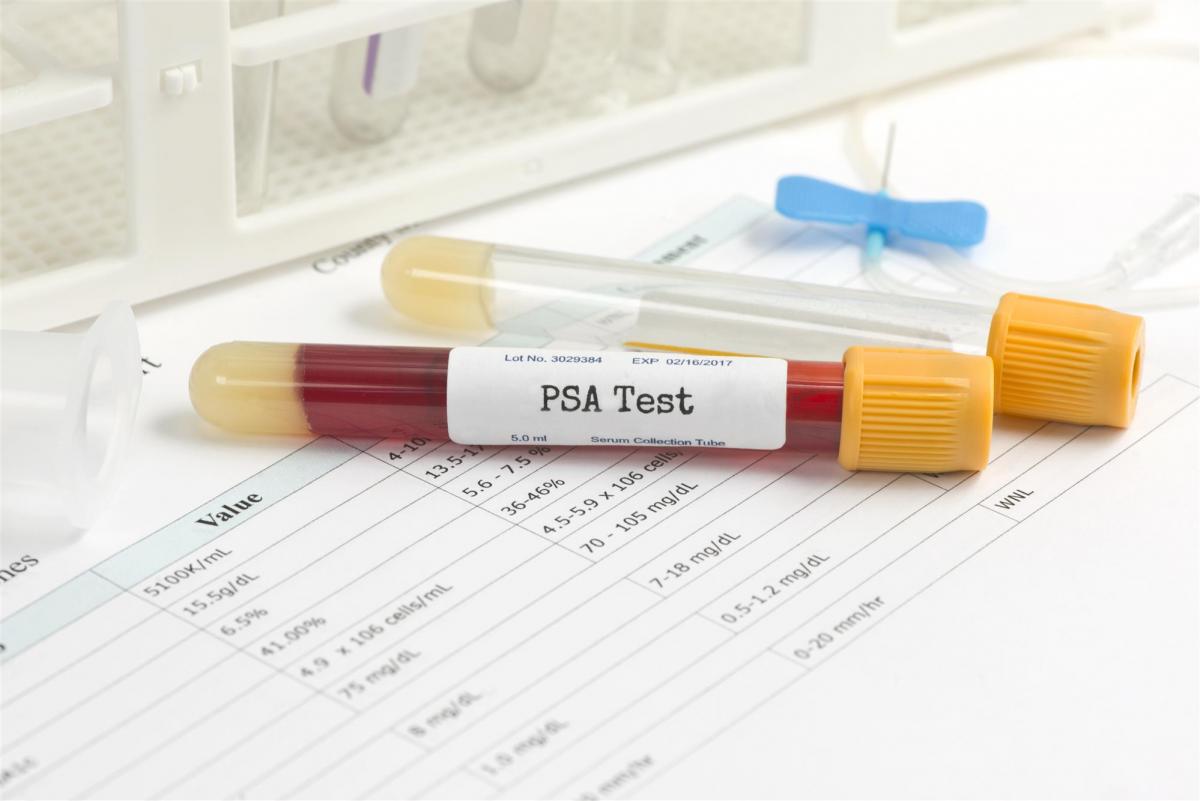
Why Prostate Screening is Important to Discuss After Age 55
Prostate cancer is both treatable and curable. Yet, this year, it will claim the lives of almost 30,000 men, according to the American Cancer Society.1 Screening via prostate exams and a blood test can ensure early detection and treatment. Here’s why prostate cancer screening is important to discuss for all men over 55 years old.
What Is the Prostate’s Function?
The prostate is a gland which produces some of the semen’s ingredients. About the size of an apricot, the gland is located below the bladder and in front of the rectum. The fluid that the prostate gland secretes keeps sperm alive. It also keeps the genetic code of sperm protected as they travel from the testes and through the urethra.
Why Should Men over 55 Consider Testing?
In its early stages, prostate cancer will often not show any symptoms and when advancing spreads to other areas of the body, including the bones, lungs, and lymph nodes. By the time symptoms begin to appear, the disease may be too advanced and widespread to be effectively treated.
Men over 55 years old should consider getting tested for prostate cancer because the risk of developing significant prostate cancer is higher after this age. It’s recommended that African American men and men with a strong family history of significant prostate cancer consider screening well at an earlier age because they are at particularly high risk of developing and dying from prostate cancer. It’s important that men know the risk factors of prostate cancer and to speak to their doctor to determine when they should get tested.
Additional Risk Factors
There are several factors in addition to age and race which can contribute to your risk of developing prostate cancer in your lifetime. Where you live can determine your risk; the highest rates of prostate cancer are found in Northern Europe and North America, and the fewest diagnoses are in Africa and Asia.
1. Family History
Many diagnoses of prostate cancer occur in men with no family history of the disease. However, if your father or brother were diagnosed with the disease, your risk of developing the disease is doubled. If several of your relatives have been diagnosed, especially if they were under 50 years of age, your risk is also especially high.
2. Diet
Why are the rates of prostate cancer higher in some areas than they are in others? Research suggests it’s primarily because of diet. Studies show that areas where nuts, grains, and certain seeds form the basis of the diet, a reduction in prostate cancer occurred. In areas where total fat intake is high, where high amounts of red meat and animal fat are consumed, the number of prostate cancer cases increased.
Interestingly, even if your country of origin is one with a low prostate cancer risk, you significantly increase your risk if you move to a country where regular and high consumption of fat and red meat is common.
3. Lifestyle
A lack of exercise can cause the development of several diseases, including prostate cancer. Along with diet, exercise is crucial to the maintenance of good health because it increases blood circulation. Regular movement also increases the rate at which toxins are flushed from the body by the lymphatic system.
Stages of Prostate Cancer
There are four main stages of prostate cancer.
Stage I. A tumor cannot be felt and/or where it involves one half or less of one side of the prostate. PSA levels are typically low to medium at this stage.
Stage II. A tumor is found only in the prostate and is small, but it may be at an increased risk of growing and spreading. PSA levels are typically low to medium at this stage.
Stage III. A tumor is growing outside the border of the prostate and the type of cancer is usually aggressive. The risk of growth and spreading is higher. PSA levels are typically but not always medium to high at this stage.
Stage IV. Cancer has spread beyond the prostate, to nearby or distant lymph nodes, other organs, or the bones.
Your Screening Options
According to the Centers for Disease Control and Prevention (CDC), because of screenings, one death from prostate cancer will be prevented for every 1,000 men between 55 and 69 years of age.2 There are two ways to screen for prostate cancer:
- Digital rectal examination (DRE)
- Prostate-specific antigen test (PSA)
Your healthcare provider will talk you through each screening process so that you know what to expect.
Of the above two screening methods, the digital rectal examination is often what causes men to avoid getting screening. However, it’s important to note the DRE is recommended because significant cancers can be found based on an abnormal DRE even with a normal PSA level.
What Happens During a DRE Examination
The DRE requires the insertion of a gloved and lubricated finger into the rectum by a doctor to check the size of the prostate and confirm the presence or absence of any abnormalities. This test is important because it can uncover signs of prostate problems that may require further testing, which is why it’s usually the first test performed.
Men who have conditions like hemorrhoids are strongly advised to inform their doctor so that worsening of the condition by the test can be prevented.
The PSA blood test is the current recommended test for screening. Typically taking place after the DRE, the PSA test detects levels of the protein-specific antigen, made by the prostate, in the blood.

What Happens After a PSA Test
Once blood is taken, tests are run to assess the PSA level. Normal levels of the protein-specific antigen will typically result in further testing at your discretion. High PSA levels will result in additional tests, such as further prostate gland examination or a biopsy of the prostate, as determined by your doctor. It is important to understand that prostate cancer can be present with a low PSA level and a higher PSA level can be present without cancer.
Important Considerations
Despite the perceived simplicity of the PSA test, there are some things to consider before choosing to complete it. The U.S. Preventive Services Task Force updated its recommendations regarding screening for prostate cancer this year to be in line with the current American Urological Association recommendations. Current recommendations are that if you are between 55 and 69 years of age, taking the PSA test is an individual decision based on shared decision making with your doctor. They do not recommend prostate cancer screening if you are older than 70.3
These recommendations are the result of new evidence which reveals that screening via the PSA test may benefit men less than previously thought. For many men, prostate cancer will not cause problems in their lifetime. Therefore, active treatment will not benefit them.
In fact, active treatment can place men in harm’s way when a false positive and subsequent over-treatment occurs in the form of chemotherapy, invasive procedures, and radiation. In addition, if diagnosed with an aggressive form of prostate cancer, a patient may not respond well to currently-available treatment options.
Other organizations, such as The American Cancer Society, recommend that men with PSA levels of 2.5ng/mL be retested every two years and that men with PSA levels of 2.5ng/mL or higher be tested every year.4

Early Detection Saves Lives
It’s a fact: The sooner it is caught, the easier prostate cancer is to treat. Don’t wait to speak with a doctor about screening for prostate cancer, especially if you are experiencing these common signs of prostate problems (which could be from infection, prostate enlargement or cancer):
- Frequent urination at night
- Difficulty urinating
- Recurring bladder infections
- Burning sensation when urinating
Crystal Run Healthcare’s urologists are dedicated to men’s health. No matter your age or stage of life, we will empower you with the information you need to make important and informed choices about your health.
We offer consultation with prostate screening and cancer specialists, as well as primary healthcare practitioners so that you can understand your screening and treatment options. Discover how Crystal Run Healthcare can make a difference to your health and your life; call 845-703-6999 to book your consultation.
Sources:
- https://www.cancer.org/cancer/prostate-cancer/about/key-statistics.html
- https://www.cdc.gov/cancer/prostate/basic_info/get-screened.htm
- https://screeningforprostatecancer.org/frequently-asked-questions/#b6
- https://www.cancer.org/cancer/prostate-cancer/early-detection/acs-recommendations.html
- https://www.auanet.org/guidelines/prostate-cancer-early-detection-(2013-reviewed-for-currency-2018)

 Optum Radiology at Crystal Run Healthcare
Optum Radiology at Crystal Run Healthcare Same and next-day pediatric appointments
Same and next-day pediatric appointments